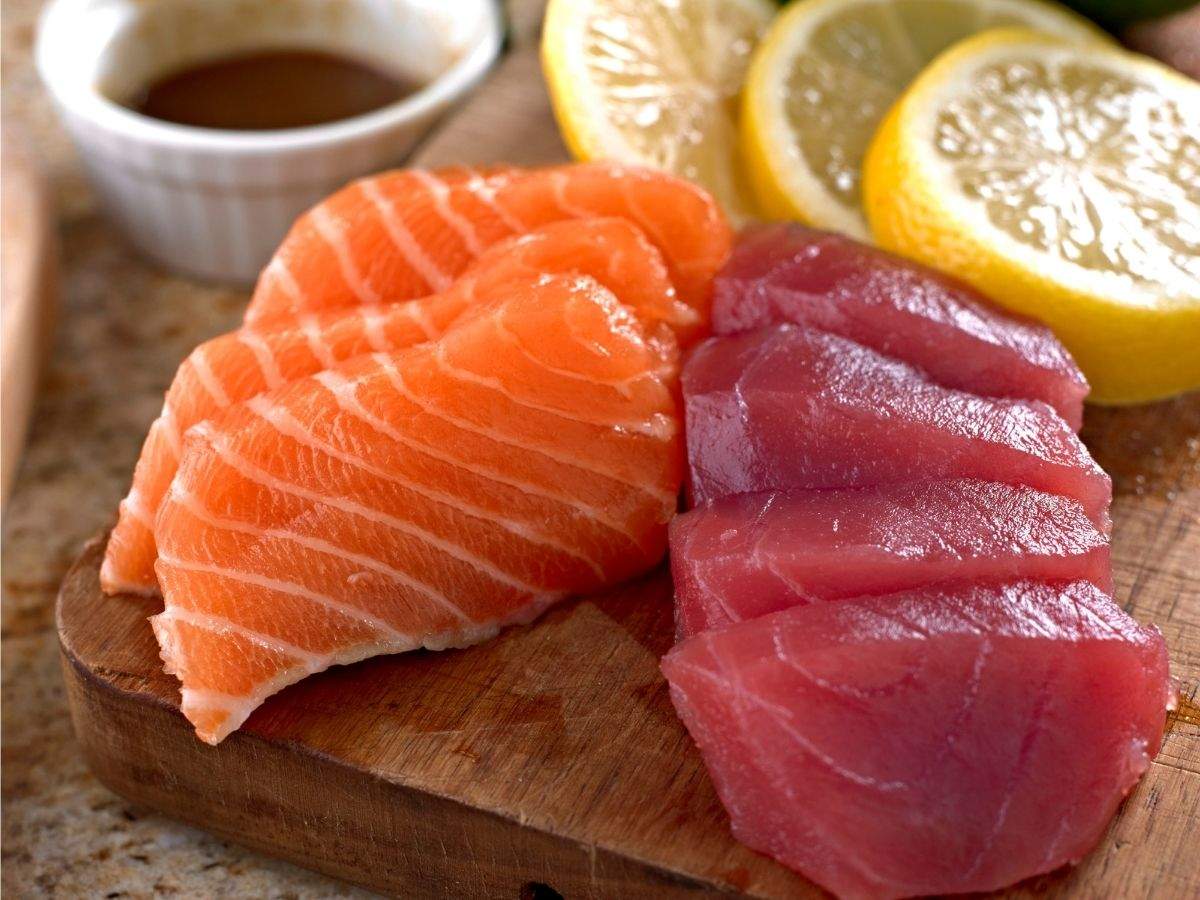
There is no doubt about the fact that fish has a lot of nutritional benefits. It is a low-fat high-quality protein. Fish is filled with omega-3 fatty acids and vitamins such as D and B2. Furthermore, it is rich in calcium and phosphorus and a great source of minerals, such as iron, zinc, iodine, magnesium, and potassium. The American Heart Association recommends eating fish at least two times per week as part of a healthy diet. Fish is packed with protein, vitamins, and nutrients that can lower blood pressure and help reduce the risk of a heart attack or stroke.
The most common varieties of fish that are consumed by many are Tuna and Salmon. Although both have many health benefits, there some differences between the two. One might ponder upon the question that, which one is healthier or which one is a better choice over the other.
Tuna, also known as 'tunny', is a fish that belongs to the mackerel family. The two most important types of tuna from a culinary standpoint are the bluefin, with its red fleshy loins that are sliced to make steaks or cut into small strips to use as sushi, and the albacore, which becomes pale and flaky when packed in a can. Tuna can be cooked in many different ways: grilled, boiled, skewered, ground up for burgers, or seared and sliced over a salad.
03/6Salmon
Salmon is a tender, reddish, and firm fish. It is one of the most popular fish choices because of its rich and buttery flavour. Its a saltwater fish and is mostly native to the waters of Alaska, the Pacific Northwest, and California. Salmon is great for a variety of preparations, including poaching, grilling, roasting, broiling, smoking, or pickling. It is a part of various dishes like salads, tartare, burgers and pasta dishes.
04/6Nutritional value of Tuna and Salmon
Salmon is high in protein, omega-3 fatty acids and vitamin D content and a great source of cholesterol. Wild salmon is an important source of Omega-3, which are essential for brain function and structure.
Tuna is a good source of omega-3 fatty acids (300mg per serving). However, the level of omega-3 in canned tuna is highly variable, since the type of manufacturing can destroy much of the omega-3 oils in the fish. Tuna is also a good source of protein.
05/6Health benefits
Both Tuna and Salmon are extremely nutritious. Salmon improves your vision as it is rich in Omega 3 fats. Salmon is higher in calories than tuna as its a fish rich in fats. Also, a serving of salmon provides more vitamin D than tuna does. Compared with tuna, salmon is also a significant source of omega-3 fats.
On the other hand, Tuna has many health benefits too. Firstly, it is very high in protein which is extremely good for your blood, skin, hair and nails. Tuna prevents you from heart diseases as well. Moreover, it reduces the chances of obesity and improves your immune system.
06/6Which one to choose?
Thus, while they are both highly nutritious, salmon comes out ahead due to its healthy omega-3 fats and vitamin D. Meanwhile, tuna is a clear winner if you are instead looking for more protein and fewer calories per serving. The best choice depends on your health goals and your taste. Choose salmon when you want to boost your omega-3 and vitamin D intake, and tuna when you want more protein and fewer calories.
November 08, 2020 at 11:30AM
https://ift.tt/3pbrsLS
Tuna vs Salmon: Is one healthier than the other? - Times of India
https://ift.tt/2NKNaVQ
Tuna

No comments:
Post a Comment